Sustainable Development News
Sustainable development news from around the world with a focus on Australia and New Zealand.
If you like what you see, you are welcome to sign up (on the right) for free sustainable development news delivered direct to your inbox each weekday morning.
Oh my gosh, such an abundance of valuable news today. It was tough choosing a top story, but the economic case for climate action came out on top due to Nicholas Stern’s stellar reputation in this field. We need to value a healthy environment and China shows the rest of the world how you can do that, not perfectly but with significant results, through a massive investment in improving its rural environment. As a result, China is making good progress on the Sustainable Development Goals while Australia languishes near the bottom of OECD countries. Ecosystem health is highlighted again in two other articles, one an enlightening study of bird poo benefiting reef biodiversity, and the other on making use of the nutrients in human waste, yes poo too. Also a trio of articles on the state of fisheries around the world.
Top Story
Pope Francis is right: there’s an economic case for climate action | Nicholas Stern | World Economic Forum
Last Friday, Pope Francis called for nothing less than “a financial paradigm shift” in order to tackle climate change. His comments, made at a conference hosted by the Vatican and uniting business people, policy-makers of different stripes, indigenous leaders, academics and young people, could not be more timely: humanity is at a turning point. But when it comes to the economy, if handled sensibly and without delay, this turning point does not have to be a breaking point.
Climate Change and Energy
Raising energy efficiency standard could save households billions | One Step Off The Grid
AUSTRALIA – Strengthening the energy efficiency requirements of Australia’s residential building code could reduce household electricity and gas bills by a whopping $18.9 billion between now and 2050, a new report has found. The Built to Perform report – published by the Australian Sustainable Built Environment Council (ASBEC) and ClimateWorks Australia – confirms energy efficiency as one of the best and cheapest ways for households to cut their energy bills, next to adding rooftop solar.
Massive surge in rooftop solar would bring end to Australia’s coal era | RenewEconomy
AUSTRALIA – The biggest threat to Australia’s legacy coal fired generators is not the explosion of wind and solar farms, or even the settings of the country’s emissions policy: Right now, it’s the continued boom in rooftop solar. That’s the assessment of Bloomberg New Energy Finance, which is expecting a massive surge of “behind the meter” solar PV capacity, referring to the solar that is installed by homes and businesses mostly to supply their own electricity needs.
Related: ACCC wants federal rooftop solar subsidy abolished by 2021 | One Step Off The Grid
Environment and Biodiversity
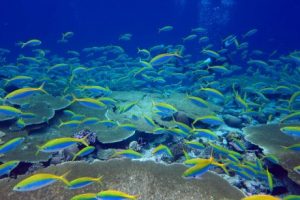
Researchers found fish biomass was much higher on reefs around rat-free islands. (Supplied: Nick Graham)
Rats are wreaking havoc on our coral reefs and reducing fish numbers | ABC News
AUSTRALIA – What have rats got to do with the number of fish on coral reefs? Quite a lot, according to new research. The black ship rat — Rattus rattus — wreaks havoc on island seabirds globally, including throughout the Great Barrier Reef where it has been a pest for more than 200 years. The animals eat the eggs of nesting birds and prey on the young, suppressing bird numbers on the islands they inhabit. A paper in Nature today demonstrates how this triggers a series of events that not only damages surrounding coral reefs, but impacts fish and other marine life as well. It’s all about poo. Bird poo.
Giant Australian cuttlefish numbers soar, drawing spectators to witness colourful breeding displays | ABC News
AUSTRALIA – Giant cuttlefish breeding in South Australian waters are providing a visual treat for spectators, who are able to witness the marine animals’ vibrant displays in numbers not seen in years. Thousands of giant Australian cuttlefish breed in the waters near Whyalla, on South Australia’s Spencer Gulf, between May and August each year. Visitors travel from across Australia to experience the only significant aggregation of cuttlefish in the world.
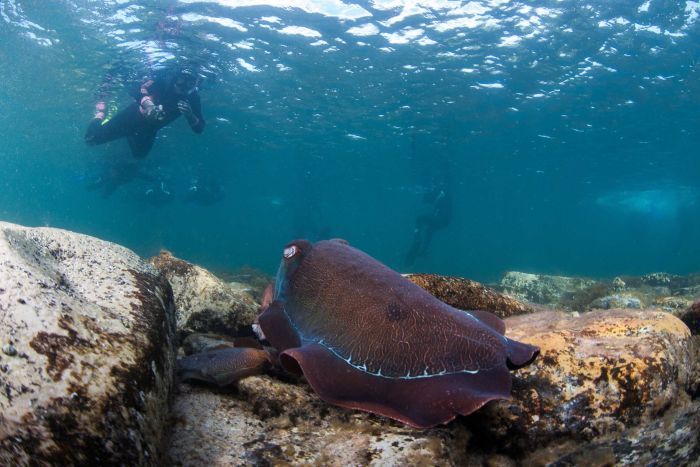
Photo: Snorkellers and divers do not have to travel far to see cuttlefish. They can be seen 3 or 4 metres offshore in shallow water. (Supplied: Carl Charter)
The ark, the algorithm and our conservation conundrum | Stuff.co.nz
How did a stinky, ugly plant become a higher priority for protection than the iconic Kauri tree? In part one of a two-part series, Charlie Mitchell examines how an official ranking of our endangered species came to be.
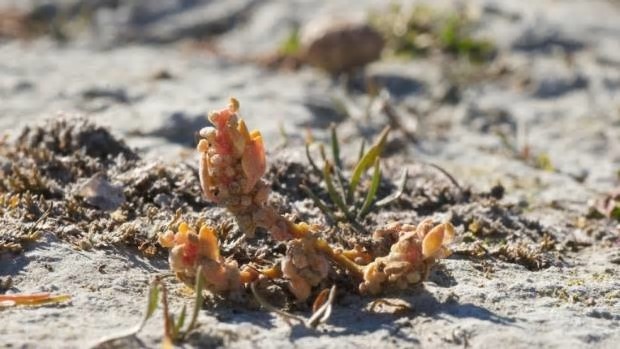
The New Zealand fish-guts plant looks and smells like its name. Photo: Department of Conservation
Related: Ten critically endangered critters with the craziest stories | Stuff.co.nz
Miners given access to Maui dolphin sanctuary | newsroom
NEW ZEALAND – A mining exploration permit has been quietly granted inside a marine sanctuary set up to protect the endangered Māui dolphins. The decision has shocked conservation groups who were unaware of the move and the Department of Conservation has “significant concerns” about the safety of the dolphins if mining were to go ahead.
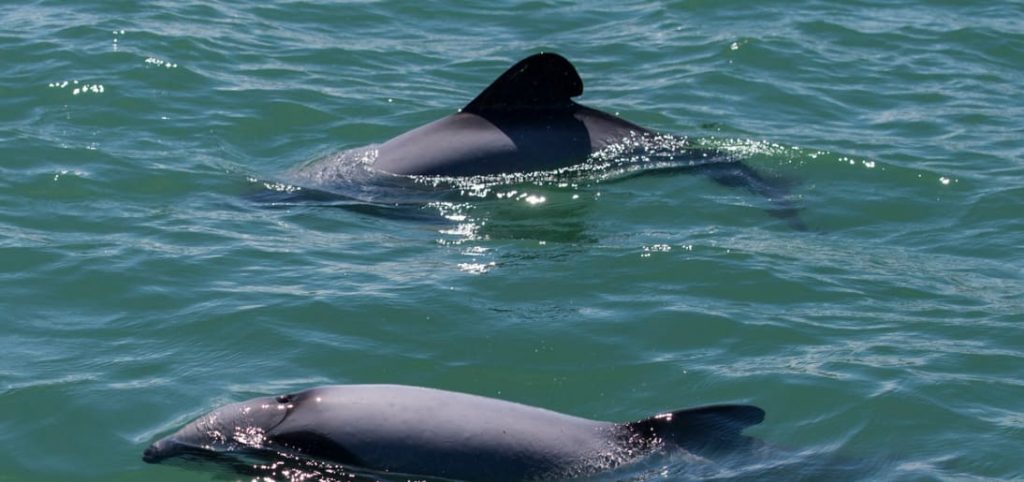
The Māui dolphin is one of the rarest in the world and only live on the West Coast of the North Island. Photo: Greenpeace
Economy and Business
Businesses band together to tackle climate change | Stuff.co.nz
NEW ZEALAND – Sixty firms that contribute almost half of New Zealand’s greenhouse gas emissions are pledging to help the country reach its net zero emissions target by 2050. The businesses’ chief executives have formed the Climate Leaders Coalition after talks with the Sustainable Business Council. By signing the CEO Climate Change Statement, each of the business leaders has committed to measuring and reporting their greenhouse gas emissions and working with suppliers to reduce emissions, with the aim of helping to keep global warming within two degrees, as specified in the Paris Agreement.
Waste and the Circular Economy
In order to make plastic bans effective, we need to embrace the circular economy | World Economic Forum
If you’re new to the world of circular economy, you’ll soon learn that describing the landscape as “dynamic” is an understatement. I’m here to help you keep a pulse on this ever-evolving and rapidly expanding landscape. So circle up, and let’s roll. This week, I’ve been struck by how circularity appears to have gone mainstream. From NBC News covering the U.S. recycling crisis and China import policies, to Barack Obama participating in a circular economy summit in Madrid, we’re seeing a significant shift in both audience and actor. In short, it’s quickly becoming broader and more mainstream.
How to make wealth from waste on a crowded planet | GreenBiz
The phrase “fecal sludge business model” probably doesn’t evoke an image of something you’d like to wade right into. But if you’re a business who’s ignoring waste management, you might just be missing out on the next big business opportunity — and a way to solve a growing global crisis. As we mark World Population Day this week, the global population is surging toward 8 billion. And with it, food production, businesses and households add ever bigger mountains of organic waste to the planet. What’s special about organic waste is that it is rich in nutrients, water and energy that can be recovered to power our economies and grow our food. For savvy businesses — both large and small — that waste is packed with potential wealth.
Air pollution linked to spikes in hospital and GP visits | The Guardian
Air pollution leads to spikes in health problems and drives up hospital admissions and visits to the GP, according to a new study. The report proves an “absolutely clear” link between poor air quality and health problems and researchers said it should serve as a warning to politicians about the serious impacts of toxic air on public health.
Politics and Society
What we can learn from China’s fight against environmental ruin | The Conversation
A good news story about China’s environment is something you don’t hear every day. But a major review published today in Nature has found that China has made significant progress in battling the environmental catastrophes of the past century. Our team, which included 19 scientists from 16 Australian, Chinese and US institutions, reviewed China’s 16 major programs designed to improve the sustainability of its rural environment and people. We wanted to tell the story of China’s progress, so that other nations may learn from its experience as they strive towards the United Nations’ Sustainable Development Goals.
Australia falls further in rankings on progress towards UN Sustainable Development Goals | The Conversation
Australia is performing worse than most other advanced countries in achieving the Sustainable Development Goals (SDGs), according to the global SDG Index, which compares different nations’ performance on the goals. According to the SDG Index, released yesterday in New York, Australia is ranked 37th in the world – down from 26th last year, and behind most other wealthy countries including New Zealand, Canada, the United States and the United Kingdom.
As Indigenous Groups Wait Decades for Land Titles, Companies Are Acquiring Their Territories | World Resources Institute
The Santa Clara de Uchunya community has lived in a remote section of the Peruvian Amazon for generations. Like many indigenous groups, this community of the Shipibo-Konibo people have traditionally managed and relied on forests for hunting, fishing and natural resources. But in 2014, someone started cutting down large sections of the community’s ancestral forests. Without community members’ knowledge or consent, the regional government had given away 200 parcels of land, which were then bought by palm oil company Plantaciones de Pucallpa, part of a foreign group of companies with known environmental and legal troubles.
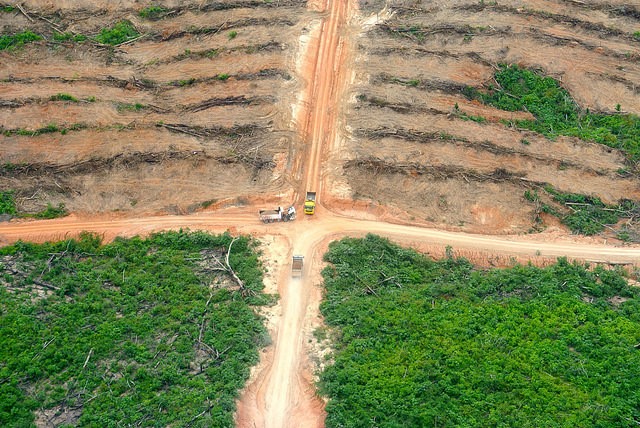
Deforestation caused by palm oil development in Santa Clara de Uchunya. Photo by Mathias Rittgerott
Coal seam gas: NSW licences effectively extended indefinitely due to legal loophole | The Guardian
AUSTRALIA – Licences needed for coal seam gas exploration in New South Wales have been effectively extended indefinitely past their expiry date, due to a legal loophole. Gas exploration – both conventional and coal seam gas – in the state requires a petroleum exploration tenement. Analysis of the NSW government’s tenements database shows 14 titles listed under “current titles” that are past their expiry date.
End coal mining in the UK, environmentalists urge government | The Guardian
UK – Environmentalists have urged the government to kill off new coal mines in the UK, by reforming the planning system to block their development. Friends of the Earth, along with the RSPB, WWF and a group of academics, said ministers should build on their international climate change leadership against coal by taking stronger action at home.
Heatwave seems to make manmade climate change real for Americans | The Guardian
USA – The warm temperatures that have scorched much of the US appear to be influencing Americans’ acceptance of climate science, with a new poll finding a record level of public confidence that the world is warming due to human activity. A long-running survey of American attitudes to climate change has found that 73% of people now think there is solid evidence of global warming. A further 60% believe that this warming is due, at least in some part, to human influences.
Food Systems
One in three fish caught is thrown away, according to a new UN report | World Economic Forum
A third of the world’s oceans are overfished and fish consumption is at an all-time high, raising fears over the sustainability of a key source of protein for millions around the world, the United Nations warned in a report on Monday. Overfishing is particularly bad in parts of the developing world where many people already struggle to get enough nutritious food to eat, the U.N. Food and Agriculture Organization (FAO) report said.
From stinky seaweed to sick fish, world’s warming oceans threaten livelihoods | Thomson Reuters Foundation
From a rise in aquatic diseases to a “massive” invasion of stinking seaweed that stops fishing boats going out to sea, the warming of the world’s oceans is affecting the livelihoods of millions – and experts say it is going to get worse. Changes in water temperature, acidity and circulation patterns combined with rising sea levels will increasingly impact communities that live off the ocean, according to new analysis from the U.N. Food and Agriculture Organization (FAO).
Warming oceans are changing Australia’s fishing industry | The Conversation
AUSTRALIA – A new United Nations report on fisheries and climate change shows that Australian marine systems are undergoing rapid environmental change, with some of the largest climate-driven changes in the Southern Hemisphere. Reports from around the world have found that many fish species are changing their distribution. This movement threatens to disrupt fishing as we know it. While rapid change is predicted to continue, researchers and managers are working with fishers to ensure a sustainable industry.

Summary of recent climate-related marine impacts in Australia. Warming on both coasts is also moving species southwards. Author provided